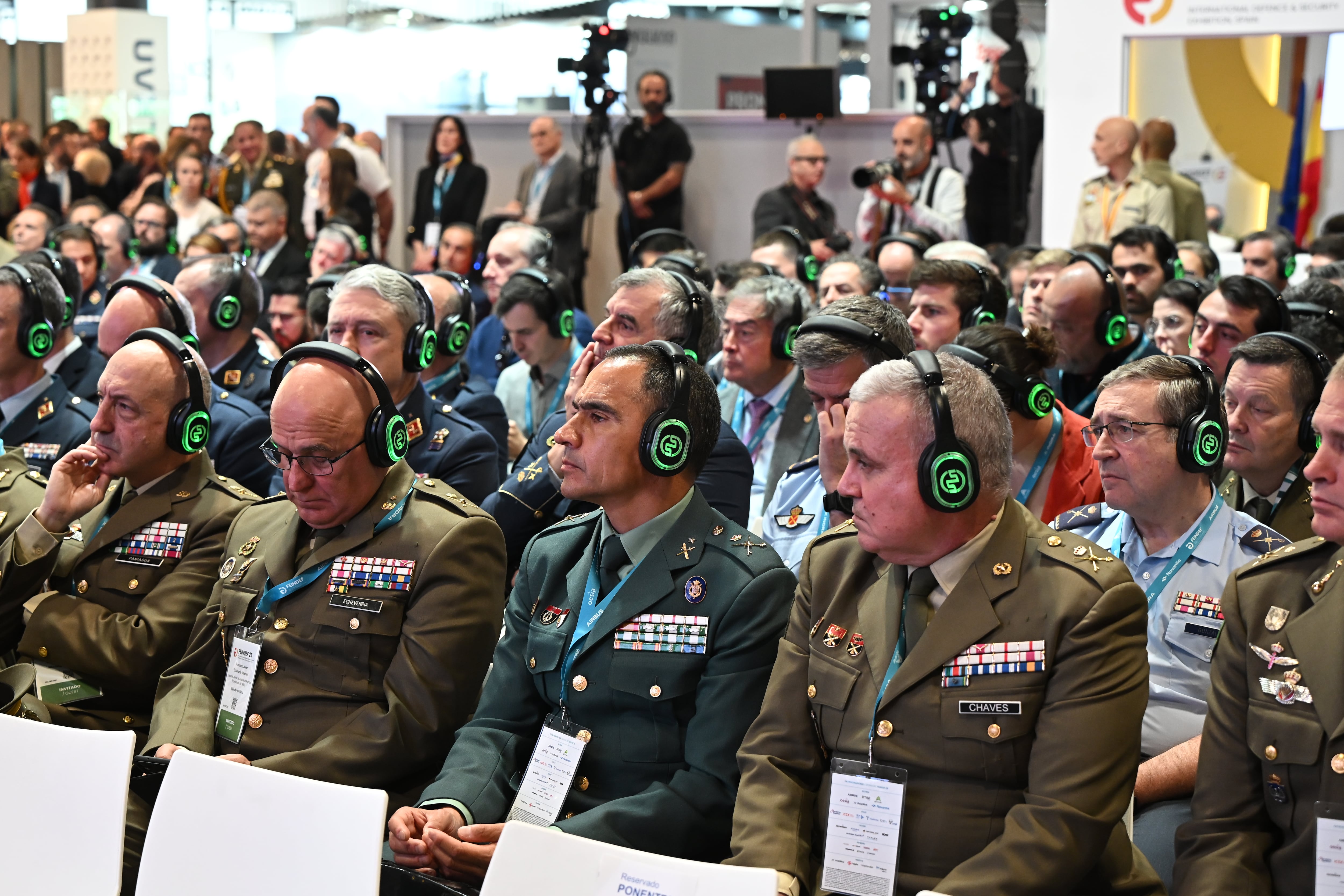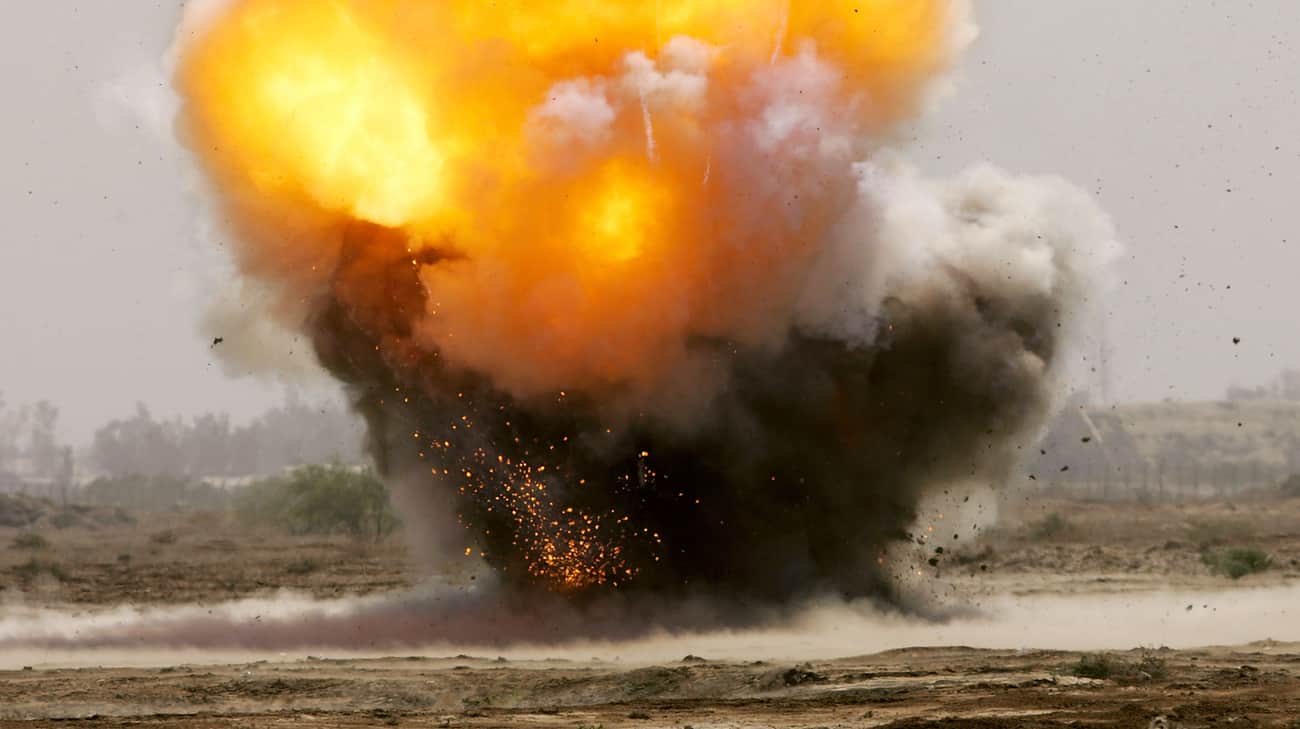How a missed school trip De Kiem laid for the largest European company in industrial real estate
/s3/static.nrc.nl/images/gn4/stripped/data132140762-ab3d24.jpg|https://images.nrc.nl/JwC1ya62ruKvZInkaJXYs-55oBc=/1920x/filters:no_upscale()/s3/static.nrc.nl/images/gn4/stripped/data132140762-ab3d24.jpg|https://images.nrc.nl/3pTCfhLsL-1Boonlbiljqh4zXsY=/5760x/filters:no_upscale()/s3/static.nrc.nl/images/gn4/stripped/data132140762-ab3d24.jpg)
In the center of the Czech city of Brno is a shiny office tower, just delivered by Real Estate Company CTP from Remon Vos, ready for the new tenants. On the tenth floor, Bert Hesselink, responsible for the rental in Europe, points in the distance. A large part of the hundred hectares of business park that CTP has laid in the city since 2001 can be seen from here. The seven sites house 250 companies. Hesselink points out: « Look, CTPark Brno, one of our top parks, with a lot of high-tech making industry and biotech. There are production companies such as Thermo Fisher Scientific, Garrett Motion, Wistron, Hitachi Energy, Honeywell, Acer and Atlas Copco. »
It is not surprising that CTP, in full Central Trade Park, is so enormously active here. Brno, a city with 400,000 inhabitants, is also called the Silicon Valley of the Czech Republic. And the Dutch company is the market leader in real estate for industry and logistics, especially distribution centers. That is also CTP in the rest of the Czech Republic, and in Slovakia, Hungary, Romania and Serbia. In Poland, Bulgaria, Austria, Germany and Motherland of the Netherlands, the nine hundred employees are also working hard.
Thanks to CTP, Vos has become one of the richest Dutch people. With an estimated capital of 4.5 billion euros, he is in fifth place of the Quote 500. Yet hardly anyone knows him. Who is this Groninger who has been living and works in Prague for thirty years? What drives him? And why does its CTP benefit like no other real estate company from Nearshoringthe relocation of parts of a company to countries not too far from the headquarters?
Since the fall of the Berlin Wall, at the end of 1989, Western European industrial companies are busy moving their production to Central and Eastern Europe, because of the low wages there and the well-trained labor force. That CTP benefits can be deduced from the annual figures. Last year, for example, the net rental income increased by 19 percent to 647 million euros and the profit by 17 percent to 1, ‘1 billion.
School trip
The story of the largest listed industrial and logistics real estate company in Europe starts in 1988. Remon Vos, then seventeen years old, is frustrated when he misses a school trip to Czechoslovakia. He talks about it, with Sterk Gronings Accent, at the operational headquarters of CTP in the center of Prague.
« I was in the secondary retail school and had missed the information meeting about the school trip. As a result, I did not know what time the buses left exactly. In fact, I was mainly busy with all kinds of side jobs and did not come to school much. I suggested that I go with another bus from the school, but that teacher thought that was too much soil. »
However, his curiosity about the destination was aroused. In 1990, the wall had just fallen, Vos got a resit. He was able to go to Czechoslovakia with Johan Brakema, an acquaintance of his father, who had a Czech wife. It was time that all kinds Gold Diggers To the ‘Wild East’ went to make money quickly. « We drove around there and I thought: Gosh, there is a lot to do here. You can buy things cheaply and sell in the Netherlands and you can also sell Dutch products there. »
Together with Brakema, he set up Vos & B – « Die B stood for Brakema » – a trade representation for Dutch companies. For dairy cooperative Friesland Dairy Foods, they marketed in the Czech Republic – split off from Slovakia in 1993 – cheese and the coffee creamer Completa.
At the end of the 1990s, the two decided to focus on real estate and services to future tenants. Earlier they had succeeded in setting up a production company for the Groningen metal company Zwartwoud Hoza in Central-Tschechia. They had the building for themselves built themselves, and the success tasted like more. As co-investor, they found the Groningen lawyer Eddy Maas, who acquired a third of the shares in the young CTP. It has been years since Vos bought out his partners.
Country risk
Huge amounts are involved in the development of real estate. In its industry, CTP with debts that amount to 45.3 percent of the real estate value is then still funded conservatively. Borrowing CTP mainly at Austrian banks. Vos: « I went to ING in the early years, at the time very active in the Czech Republic, until they found at the head office in Amsterdam that there was a too high ‘country risk’. But for the Austrians, the Czech Republic is their backyard. »
Vos has been living and works in the Czech Republic for thirty years. He is only the Mondays at the office, the rest of the week he flies from hot to her to visit relationships, to view locations and tap into new contacts. Recently he is a lot in Morocco, which he says can grow into an interesting location for manufacturing industry. « I get a lot of questions from customers about that country. »
Vos will stay in Vietnam during the first contact for this interview. Asian companies now form more than 10 percent of his tenants and, according to Vos, growth is « not over yet ». After the Coronapandemie, Piraterij and the blockade of the Suez Canal had revealed how vulnerable international supply chains are, it rained for him requesting Taiwanese, Korean and other Asian companies in search of location in Central and Eastern Europe.
Photo Robin van Lonkhuijsen/ANP
About half of the CTP portfolio consists of buildings for the manufacturing industry, another 45 percent are for the logistics sector-especially distribution centers. The rest consists of apartment buildings, offices and facilities on business parks such as classrooms, catering and meeting rooms. CTP manages 13.2 million square meters of business space. Furthermore, it has 2,640 hectares of land, with a value of 16 billion euros, spread over two hundred locations. In 2030 the area of business space must cover around twenty million square meters.
According to ABN AMRO analyst Steven Boumans, it is mainly due to the fact that CTP could become so large, it is mainly due to the strategy to develop complete projects, including facilities and lots of greenery, and to manage them with local, own employees. Sales only take place in exceptional cases. With that approach you can guarantee tenants quality and keep them satisfied. They also get the commitment that they can always expand in the area if necessary. « That ensures that tenants do not leave quickly, » says Boumans.
Bond loans
CTP, which has its headquarters at the Apollolaan Amsterdam, has been listed on the Amsterdam stock exchange since 2021. For a company that always presents good results, there is little trade in the share. That is because VOS owns 73.4 percent of the documents and the rest are predominantly in the hands of large institutional investors. Partly because of this it is hardly known to private investors.
In February, the company placed two bond loans worth 1 billion euros together, again mainly with institutional investors. With that money, more expensive loans are being repaid. CTP also spent 2024 in new shares in September 2024. This proceeds are intended for the development of new projects and expansion of existing business parks.
New customers for this can be Chinese companies that are now looking for a location in Central and Eastern Europe. Especially manufacturers of electric cars and their suppliers now know how to find the region, not in the last place to avoid import duties up to 38 percent that Brussels has been imposing up since October.
CTP now has representatives in China and Hong Kong for the recruitment of these companies. According to Vos, Chinese companies prefer ‘China-friendly countries’, such as Hungary, Slovakia and Serbia. Vos wants to assist at the location, although its regimes are not undisputed. « Oh well, politically, I love that, » he says shoulder.
Wages increased considerably
It is still lucrative production for companies to move to Central and Eastern Europe, says CTP. Although the labor supply has become tighter-unemployment is on average only 6.5 percent-and wages have risen considerably, but also in Western Europe, labor became a lot more expensive. If you include tax benefits and subsidies, the net wage costs in Central and Eastern Europe would only be a quarter of those in Western Europe.
In the meantime, Western companies are also moving factories of China and other Asian countries to Europe and the US. Since the Coronapandemie, half of the large international companies have already done this and another quarter are planning the next three years. This is according to a study by Buck Consultants International (BCI) from 2023. This Nijmegen company supports international companies in the choice of location locations.
The desire to be closer to Western markets, to reduce the dependence on China and, according to Buck Consultants, the need for solid supply chains are the most important considerations to opt for middle or Eastern Europe. « And the trade war of US President Trump reinforces that global trend to the regionalization of production only, » says CEO René Buck.
Strikingly enough, Vos and Hesselink cannot mention examples of European companies that transfer production from China to Central and Eastern Europe. Buck understands that well. « International companies will rarely trim that they are moving production from China to Central and Eastern Europe, for fear of repercussions of the Chinese government.
« You see that they start a new factory for the European market, and for example in Mexico or the US for the American. The factory in China is not extended and the Chinese market and the rest of Asia continue to serve. »
Old steel companies
What Vos himself attributes his success? « The art is to buy land at locations that you believe in when the market is at its low point, as in the aftermath of the credit crisis, » he says.
Vos is now firmly committed to the struggling Germany, where he purchases old steel companies to redevelop its business sites
He currently focuses firmly on the Germany in Crisis, where he buys old steel companies. He can redevelop their often huge business sites for, for example, (city) logistics or high -tech manufacturing industry. « Of course you have to believe that Germany has a bright future after this difficult period – and I have that belief! »
When Vos is speaking, he makes a timid impression. That is apparent, say close employees: he can be extraordinarily direct if things don’t go the way they should go.
For example, he does not take a magazine for the basket when it comes to the CTP activities in the Netherlands. Calculated in Vos’ Fatherland, the expansion is extremely difficult. The rental of space in City distribution hub CTPark Amsterdam City (120,000 square meters) had a slow run -up, partly due to disputes with the Amsterdam Port Authority. Vos is also not satisfied with the Netherlands in general.
« I would like to do a lot more in the Netherlands. But the Netherlands has the worst business climate in Europe for manufacturing industry. This is due to netcong by network, nitrogen, restrictions for distribution centers due to fear of ‘dragonfly’, the discussion about labor migration, growing political impotation and – downright to make room for newness to make room for newness. Germany.
Eindhoven as an example
In ‘Brainport region’ Eindhoven, Vos sees an inspiring example. Right next to CTPpark BRNO is about 300,000 square meters ready for expansion. Universities and training institutions could also open branches there, he thinks, according to the example of the Eindhoven High Tech Campus and Brainpark 1.
CTP manager Hesselink recently started to see with a Czech delegation in Southeast Brabant how high-tech companies and training institutions such as the Eindhoven TU Eindhoven work together. In the Czech Republic, and actually throughout Central and Eastern Europe, science and business are still separate worlds. Hesselink: « But there too, the realization that intensive cooperation is crucial for innovation. »

:format(webp)/s3/static.nrc.nl/wp-content/uploads/2025/03/13200124/data129312444-15ad8d.jpg)
/s3/static.nrc.nl/images/gn4/stripped/data132142282-8be43b.jpg)
:format(webp)/s3/static.nrc.nl/wp-content/uploads/2025/04/24221432/data131297534-ab5eb7.jpg)




